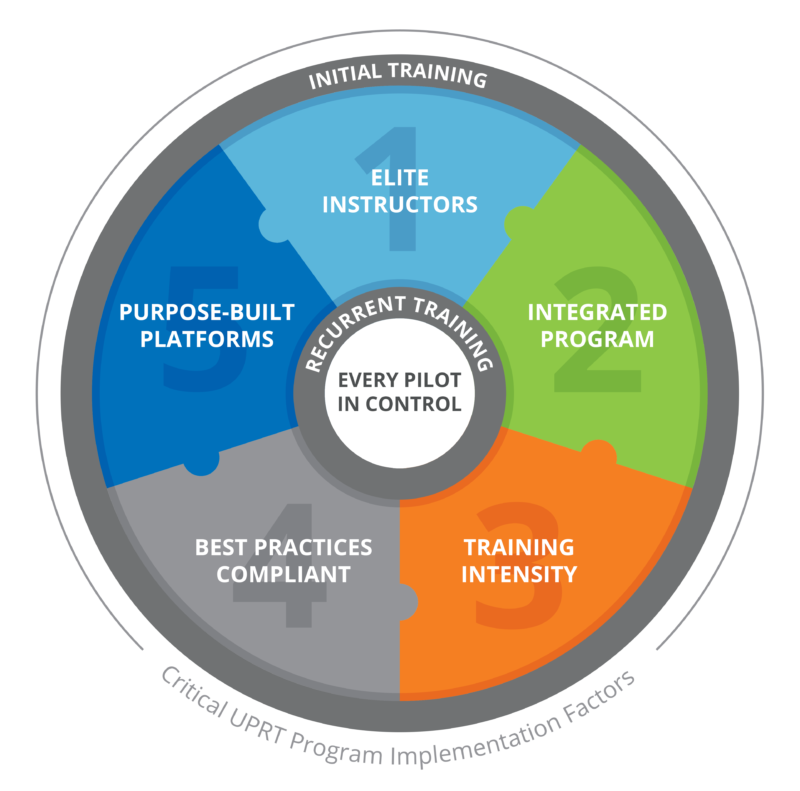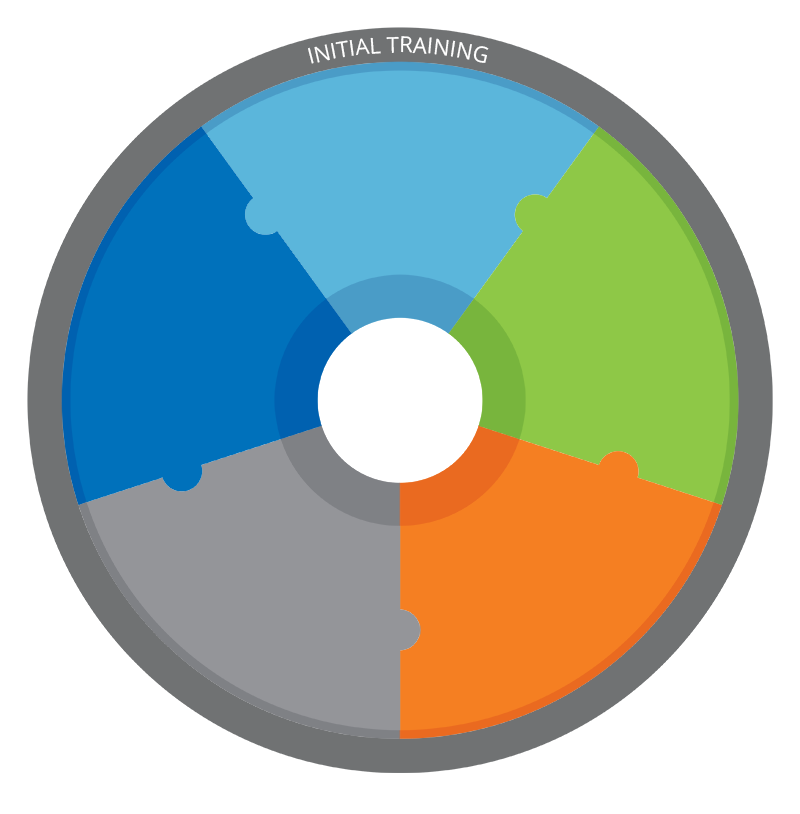At APS, our Purpose is ‘We Help Pilots Bring Everyone Home Safely’. We accomplish this Purpose by executing on our Brand Promise of ‘Every Pilot Trained – In Control – All The Time’. Our training methods have been perfected over 25 years and our solutions proven; APS has saved 100s of lives. It’s all we do.
APS Upset Prevention and Recovery Training (UPRT) is comprehensive pilot training designed to help you prevent the #1 fatal threat to air safety – Loss of Control In-Flight (LOC-I). Our comprehensive courses ingrain the time-critical, counter-intuitive skills necessary to prevent or, if necessary, recover from life-threatening airplane upsets. Where few specific industry upset training provider guidelines or standards exist, APS provides evidence-based training that adheres to the Every Pilot In Control Solution Standard™ (EPIC-S2™), providing the safest, most effective upset training available today. APS’ UPRT programs are trusted by corporations large and small, military and government agencies, flight schools, aviation insurance agencies, global airlines and major US air carriers. APS is leading the industry into it’s 3rd generation of UPRT, aptly coined Next Generation Life-Saving Upset Training.
 An immediate and accurate pilot response is critical to prevent an airplane upset that can quickly lead to Loss of Control In-flight (LOC-I). Unfortunately, general pilot training requirements do not cover the counter-intuitive and time-critical skills necessary to prevent and overcome LOC-I. For more than three decades, we’ve collaborated with aviation’s key industry leaders, safety organizations, and regulatory agencies as we have tested and refined the best practices for effective Upset Prevention and Recovery Training (UPRT). The Every Pilot in Control Solution Standard (EPIC-S2) is the resulting practical UPRT methodology incorporating the six Critical UPRT Program Implementation Factors necessary to produce an unparalleled and effective UPRT solution for every fixed-wing pilot.
An immediate and accurate pilot response is critical to prevent an airplane upset that can quickly lead to Loss of Control In-flight (LOC-I). Unfortunately, general pilot training requirements do not cover the counter-intuitive and time-critical skills necessary to prevent and overcome LOC-I. For more than three decades, we’ve collaborated with aviation’s key industry leaders, safety organizations, and regulatory agencies as we have tested and refined the best practices for effective Upset Prevention and Recovery Training (UPRT). The Every Pilot in Control Solution Standard (EPIC-S2) is the resulting practical UPRT methodology incorporating the six Critical UPRT Program Implementation Factors necessary to produce an unparalleled and effective UPRT solution for every fixed-wing pilot.




